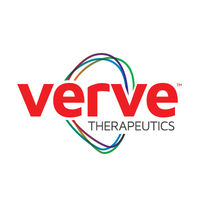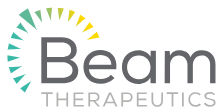iStock,
Alona Horkova
Contingent value rights are rising in a down market, helping to close the gap between buyer and seller expectations in biotech transactions.
In today’s biotech markets, every drop of value in a deal is meaningful. That’s why companies are increasingly tacking on contingent value rights to claw just a little bit extra in future deal value potential.
But there’s more to these often-complex add-ons, sometimes referred to as a type of earnout. Usually, a biotech has worked hard on an asset that a buyer doesn’t necessarily see the light on. Adding a CVR can provide potential value to a drug candidate that otherwise may be headed for the scrap heap.
Brad Stewart, Life Sciences National Leader at advisory services firm BDO USA, said CVRs are a way to “close the gap” between a seller’s and a buyer’s expectations of an asset.
“CVRs play a role when there’s a difference in people’s certainty on the outcome,” Stewart told
BioSpace
in an interview. “It lets you set aside something that’s not necessarily tangible. You can’t put a valuation on a feeling or a belief or that sort of thing, but you can put a valuation on an event occurring.”
Sanofi has included CVRs in a number of recent deals, including with
Blueprint Medicines
and neuroscience biotech
Vigil Neuroscience
. In the latter deal, shareholders received $8 upfront plus the possibility of $2 per share down the line if oral TREM2 candidate VG-3927 achieves commercial sales. This valued the deal at $470 million without the CVR, and $600 million with the payout.
Of course, as the name implies, these payouts are not guaranteed.
Carefully Crafted CVRs
CVRs must be carefully crafted, Stewart said, with verifiable events and sales targets to ensure there is no disagreement later. This is where good lawyers come in, to meet in the middle between a buyer and a seller with different ideas of what various assets are worth. Lawyers are also critical for litigating when disagreements do arise.
Consider the case between Alexion and Syntimmune. The former agreed to buy the latter in September 2018 for $400 million and $800 million in milestones. The earnouts were based on several clinical trial milestones for the rare disease treatment ALXN1830.
The program faced significant struggles—including the COVID-19 pandemic that upended the global biopharma business—and Alexion eventually dropped several indications that were subject to the earnout agreement. Then, in July 2021, AstraZeneca acquired Alexion and launched a portfolio review. As a result, the entire ALXN1830 program was terminated by the end of that year. Syntimmune’s investors filed suit.
A court
ruled in June
that Alexion had breached its obligation to make “commercially reasonable efforts” to develop the programs as laid out in the earnout agreement. The decision to cut the program was “driven by AstraZeneca’s pursuit of merger synergies,” the court said in its ruling.
Ultimately, AstraZeneca was ordered to pay $181 million, on top of a previous $130 million judgement issued in September 2024.
“In the high-stakes world of pharmaceutical M&A and licensing, milestone design has become a sophisticated application of probability theory, financial planning, and legal strategy,” lawyers from Clearly Gottleib
wrote in a July analysis
of the Alexion-Syntimmune case.
Unstranded Assets
CVRs can have a long tail, with the triggering event sometimes years away. This is the case for gene editing specialist Verve Therapeutics, which is also up for a CVR in its buyout agreement with Eli Lilly.
The biotech agreed to be acquired for $10.50 per share—or about $1 billion total—plus a $3 CVR payable when the first patient is dosed with the base editing therapy VERVE-102 in a U.S. Phase III trial for atherosclerotic cardiovascular disease. This milestone must occur within 10 years of the transaction for the CVR to be payable. William Blair, which said the CVR could add $300 million in value to the deal, wrote in a June note to investors that the payout is likely and could occur in the first half of 2027.
But William Blair noted that a “gating factor” to the CVR payout is that Verve will have to prove that VERVE-102 is safe in an ongoing Phase II trial. Verve ran into safety concerns with a prior candidate but has had better luck with the next-generation drug. The deal itself was considered “a bargain” for Lilly, the analysts said.
Deals like this, with the potential for a long timeline before payout, can turn off many investors. “It’s just like a house,” Stewart said. “An all-cash purchase price is more valuable to some people than whatever combination of cash and mortgage and other things that may delay the closing.”
That means venture capitalists, private equity firms or other fast-moving investors may want nothing to do with them, Stewart said. On the flip side, he continued, investors may want to park the money in a CVR in hopes that the markets will improve, so it depends on the investor base.
“When there are investors who believe that what they have will fundamentally change the market, then that’s probably a smart bet from their perspective,” Stewart told
BioSpace
.
But of course, very few products actually go on to shift paradigms. Stewart points to the rise of GLP-1s, saying that it’s unlikely anyone bet a hefty CVR on any of those assets given the improbability of their monumental rise. It does happen, but catching that lightning in a bottle is rare.
“If you were the acquirer, you’d just be like, ‘Well, how about if I just give you an extra $100 [upfront] and never hear from you again,’ right?” Stewart said. “Because that’s the simpler way, because you don’t want five years from now . . . someone suing you who has this emotional attachment to an irrational outcome.”
Bluebird bio’s go-private deal, which closed in June, showcases such a fight for more upfront cash over a CVR. The original deal would have entitled shareholders to $3 in cash per share, with a CVR of $6.84 per share if the company were to achieve certain net sales milestones. This would have meant a small upfront payment but potentially greater earnings down the line. Instead,
bluebird executives held out
for a bigger upfront payment, ultimately
sealing the deal
with an offer of $5 per share in cash upfront for shareholders if they declined the CVR. This helped raise the deal value from about $30 million upfront to just under $50 million.
CVRs also run the risk of becoming meaningless even if the milestones are met. Steward points to policies like the Most Favored Nation drug pricing proposal from the White House, which seeks to set drug prices to those paid in other equivalent nations. If you had a CVR tied to a sales benchmark for a drug that ultimately had a lower price than expected, you might miss out.
“You can’t really blame the acquiring company for that,” Stewart said.
In the case of GLP-1s, Stewart pointed to compounding pharmacies and their impact on sales as a consideration in a CVR negotiation. Despite the blockbuster market potential for weight loss drugs, sales are harder to predict due to this external factor.
Still, the markets are currently very welcoming to CVR negotiations, according to Stewart. Biotechs are struggling and running out of cash. Many are hunting for partners that may never materialize, leaving stranded assets in need of a home.
“This is a way to unstrand some of them,” Stewart said.
CVRs still happen when markets are hot, but often a buyer will want to close a deal quickly and adding on another $100 million upfront to do so is the best way to seal the deal and avoid protracted negotiations.
“You don’t necessarily see CVRs used as much in very up markets or at very high valuations [because] there’s just a lot more competition for deals going on. People are fighting. The acquirers . . . are looking to close deals quickly so that they’re not being competed against or losing out to another party,” Stewart said. “In a down market, there’s dramatically less competition, typically, and so creativity has to be something that’s used there.”









